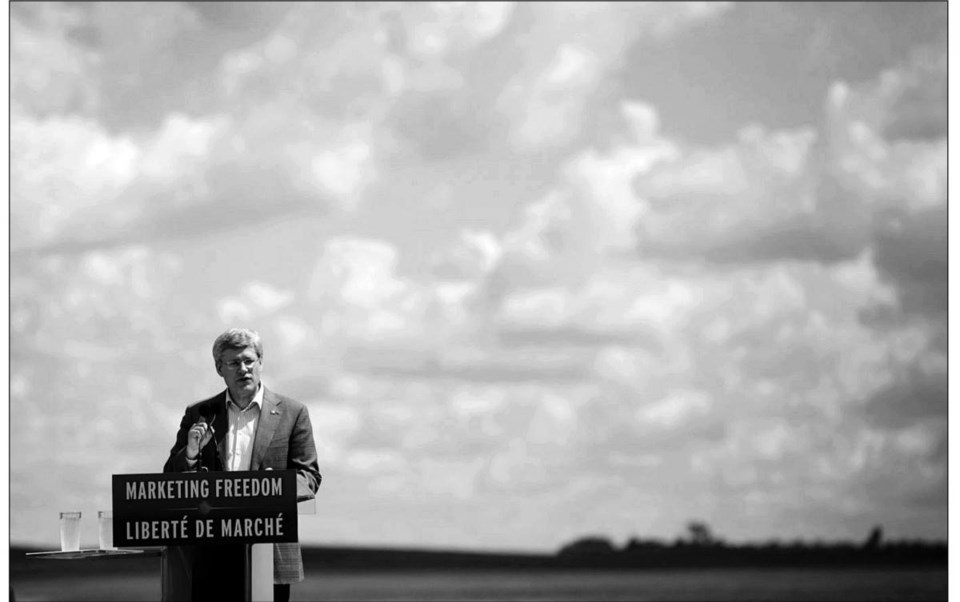Western Canadian farmers who were convicted in the 1990s for taking their grain across the border to sell in the U.S. have been pardoned.
Prime Minister Stephen Harper announced the pardons on a farm near Kindersley, Sask., where he and Agriculture Minister Gerry Ritz marked what the government calls marketing freedom day.
New federal legislation kicked in Wednesday to end the Canadian Wheat Board's decades-long monopoly on western wheat and barley sales. That means western farmers can sell their grain to whomever they choose, whenever they choose instead of having to go through the board.
"These people were not criminals. They were our fellow citizens," the prime minister said to cheers from hundreds of invited farmers who gathered to support the change to the wheat board.
Jim Chatenay, one of the pardoned farmers, said he was "overwhelmed with happiness."
"Now we can have everything in our favour. - It's just a glorious, wonderful day and this was well worth the wait."
The farmers were trying to get around a law at the time that said they had to sell their wheat and barley through the Canadian Wheat Board or get export permits from the agency.
Chatenay ran into trouble in 1996. The Alberta rancher was told to pay a $4,000 fine or face 64 days in jail for driving across the border to donate a bag of wheat to a 4H club in Montana. The case was in and out of court until 2002 when Chatenay was put behind bars.
"The time was long and slow. Played a lot of cards. Lockdowns were a little painful and scary cause every once in a while we'd have to get moved around a little bit," he recalled.
In the end, Chatenay served 23 days.
Harper said the farmers who drove small amounts of grain across the border in symbolic rebellion were responsible for first raising the monopoly issue in the minds of Canadians.
"For these courageous farmers, their convictions will no longer tarnish their good names ... it is to them that much of this victory is owed."
The grain growers belonged to a loosely knit group called Farmers for Justice. They would often have their vehicles or equipment seized at the border, and in some cases were charged and con-victed for breaking the law. At least one producer spent several months in jail.
"Never, never, never again will western farmers - and only western farmers - growing their own wheat on their own land be told how they can and can't market their products," Harper said with rolling green fields behind him.
There are farmers who still support the monopoly. They worry that the open market will leave them at the mercy of railways and big, international grain companies. The group Friends of the Canadian Wheat Board said Wednesday that the change will hit farmers in the pocketbook. "By destroying the world's largest marketer of wheat and barley, Stephen Harper has transferred a tremendous amount of wealth and influence away from farmers," said group chairman Stewart Wells. "There is no longer any meaningful influence by farmers inside the grain trade."



